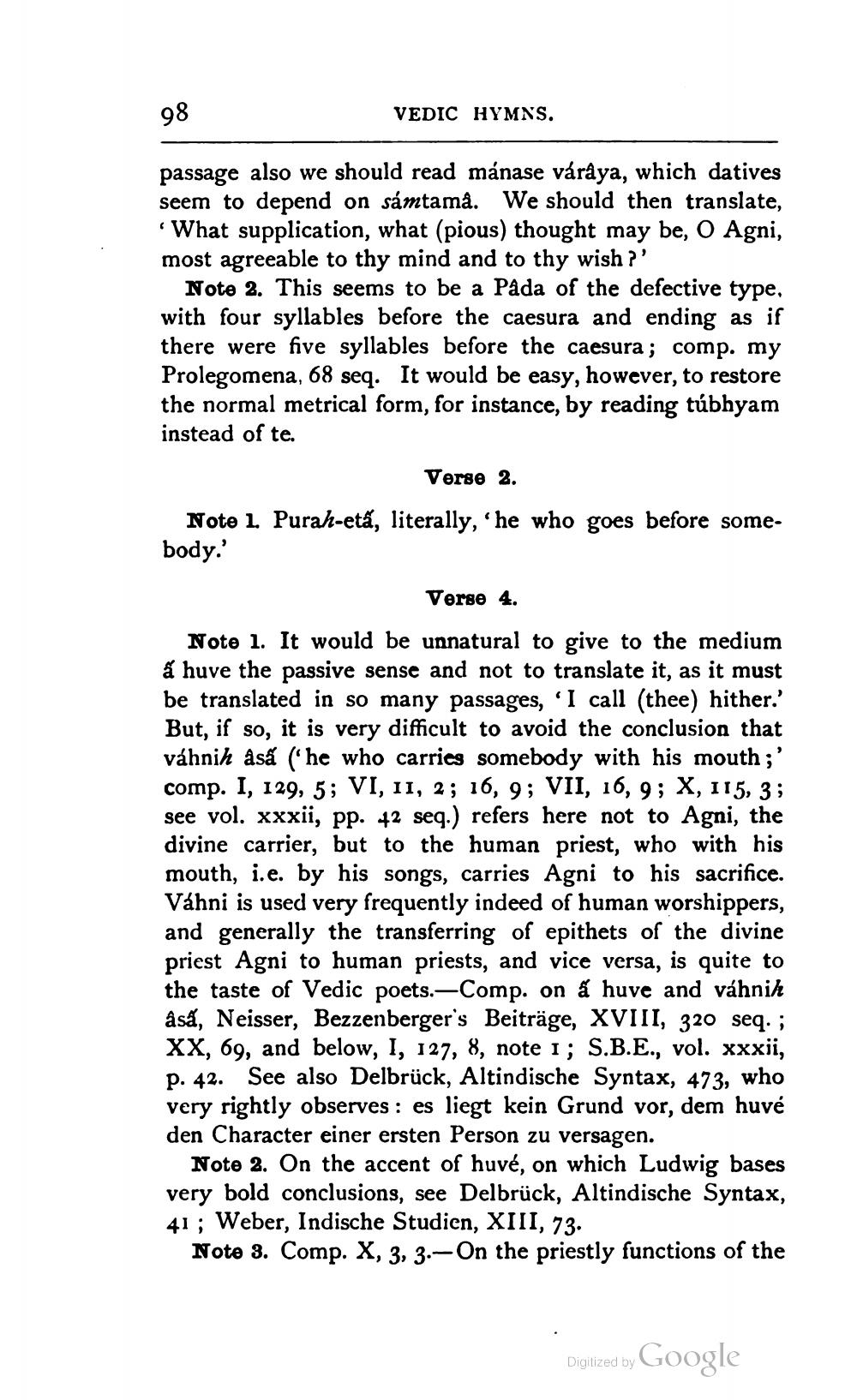________________
VEDIC HYMNS.
passage also we should read mánase váraya, which datives seem to depend on sámtama. We should then translate,
What supplication, what (pious) thought may be, O Agni, most agreeable to thy mind and to thy wish?'
Note 2. This seems to be a Pada of the defective type, with four syllables before the caesura and ending as if there were five syllables before the caesura; comp. my Prolegomena, 68 seq. It would be easy, however, to restore the normal metrical form, for instance, by reading túbhyam instead of te.
Verse 2.
Note 1. Purah-etā, literally, he who goes before some. body.'
Verse 4.
Note 1. It would be unnatural to give to the medium å huve the passive sense and not to translate it, as it must be translated in so many passages, 'I call (thee) hither.' But, if so, it is very difficult to avoid the conclusion that váhnih asă ("he who carries somebody with his mouth;' comp. I, 129, 5; VI, 11, 2; 16, 9; VII, 16, 9; X, 115, 3; see vol. xxxii, pp. 42 seq.) refers here not to Agni, the divine carrier, but to the human priest, who with his mouth, i.e. by his songs, carries Agni to his sacrifice. Váhni is used very frequently indeed of human worshippers, and generally the transferring of epithets of the divine priest Agni to human priests, and vice versa, is quite to the taste of Vedic poets.—Comp. on å huve and vahnih asá, Neisser, Bezzenberger's Beiträge, XVIII, 320 seq. ; XX, 69, and below, I, 127, 8, note 1; S.B.E., vol. xxxii, p. 42. See also Delbrück, Altindische Syntax, 473, who very rightly observes: es liegt kein Grund vor, dem huvé den Character einer ersten Person zu versagen.
Note 2. On the accent of huvé, on which Ludwig bases very bold conclusions, see Delbrück, Altindische Syntax, 41; Weber, Indische Studien, XIII, 73
Note 3. Comp. X, 3, 3.- On the priestly functions of the
Digitized by Google




